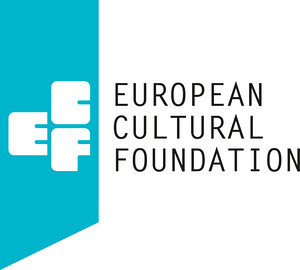May 9, 2017
On May 9—Europe Day—four laureates will receive the ECF Princess Margriet Award for Culture 2017: writer Aslı Erdoğan (Turkey), writer and scholar Navid Kermani (Germany), musician Luc Mishalle (Belgium) and visual artist Marina Naprushkina (Germany). The laureates will receive their awards—each consisting of EUR 20,000—from HRH Princess Margriet of the Netherlands. ECF President HRH Princess Laurentien of the Netherlands will give a speech during the award ceremony in Amsterdam.
The annual ECF Princess Margriet Award for Culture is conferred on artists and thinkers who inspire change in the way people shape the societies in which they live, underlining the European Cultural Foundation’s belief that artistic and cultural engagement form an integral part of political and social change.
The laureates
Aslı Erdoğan (Istanbul) is a writer and columnist whose literary oeuvre includes novels, novellas and short stories, all of which engage readers as they display humanity in all its fragility. Hers is a defiant literary voice in Turkey, contributing to a vision of a 21st century society bound by values of political and cultural inclusivity. She was detained as a result of being a member of the advisory board of the Özgür Gündem newspaper in August 2016. Although she was released from prison in December 2016, she is unable to leave Turkey while her trial continues.
Novelist, orientalist scholar and journalist Navid Kermani (Cologne) has produced novels, media reports, plays and children’s books and is known as a literary cosmopolitan who is never satisfied with simplistic answers or simple identities. His fiction deals with existential subjects including death, rapture and art. As an academic, Navid has displayed a detailed historical understanding of how eastern and western intellectual undercurrents intertwine. As a journalist, he has offered insightful perspectives on the acceptance of migrants, countering divisive views on refugee issues. His work brings together cultures and religions that today are being pushed into opposition, lifting us out of polarising discourse and facilitating a collective rethinking of our societies and our future in Europe.
Musician, composer and artistic director Luc Mishalle (Brussels) uses his more than 30 years of experience in jazz and free improvisation to teach and explore crossovers of vastly different musical styles in MET-X, a Brussels-based house of music makers which embraces many communities and generations. Mishalle’s work brings people into a musical dialogue that rises above political argument and cultural boxes, and shifts the discourse from fragmentation towards a language we can all identify with.
The work of artist Marina Naprushkina (Berlin) under the flag of the imaginary Office for Anti-Propaganda shows how art and creative activism can inspire change in the political imagination and create an inclusive social base. Most recently she has been working with old and new Berliners, to find collaborative ways of living together through culture. This initiative—Neue Nachbarschaft//Moabit—is an example of how the field of contemporary art can be an integral part of society.
Cultural responses to today’s urgencies
“All of the laureates are committed to striking a chord with people who do not necessarily agree with them—to question presumptions, to listen—and they challenge us to do the same,” says Katherine Watson, ECF Director. “Luc Mishalle and Marina Naprushkina are very active in their respective local communities, where people from different cultures are finding ways to invent new forms of social involvement. Navid Kermani and Aslı Erdoğan reach beyond the immediacy of their own networks and, through literature, journalism and media, inspire a broad and inclusive public across many borders, opening minds and opening debates.”
Together, these four extraordinary individuals bring an incredible richness to the European cultural landscape. They embody exemplary cultural responses to today’s urgencies and show how culture is a vital part of the conversation in creating tomorrow’s societies.
For more information and press materials, contact:
Karen Jochems: kjochems [at] culturalfoundation.eu or Enrica Flores d’Arcais: efloresdarcais [at] culturalfoundation.eu
About the European Cultural Foundation (ECF)
Founded in 1954, ECF believes that culture is what shapes ways of living together and strengthens the bonds of European solidarity. Culture helps bridge divides and connect people on a fundamental level.

